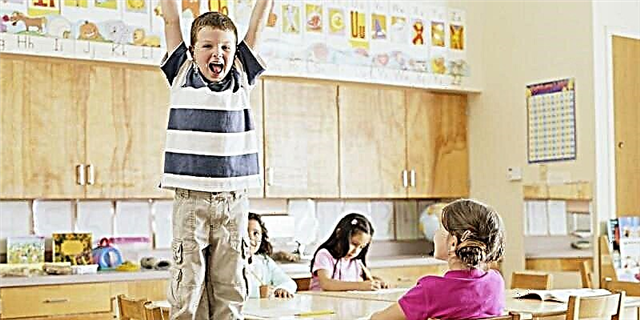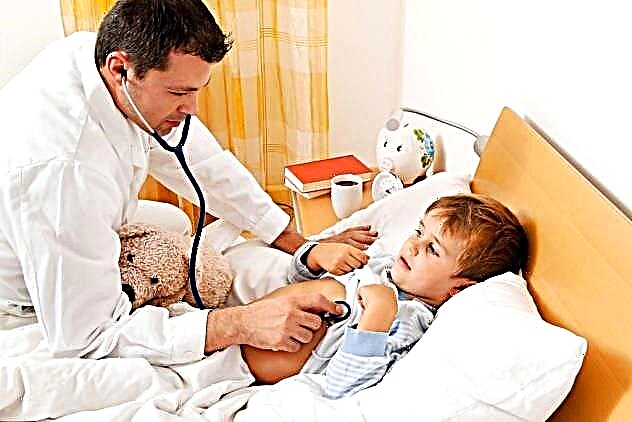
School is the first institution in the life of every person. Whether the student is offended, and how comfortable and confident he feels, directly depends on his further development, creativity, desire to learn and reach new heights.

School and the consequences of resentment
It can be hard to focus on class when you are being ridiculed by your classmates. And if the grievances are of a more serious nature, the consequences are likely to be deplorable and will be expressed in a lack of willpower, an inability to make decisions, the development of complexes, distrust, or, on the contrary, anger.

How to understand that a student is offended or defiled if he is silent?
Signs can be:
- The child refuses to go to school, looks for any reason to stay at home, and academic performance declines.
- The toddler is upset and depressed on weekdays, but is in good spirits on weekends.
- Outward signs - beatings, damaged things or their absence.
- Complaints of head or abdominal pain (possibly signs of psychological problems).

How an outcast is chosen
Most people believe that the reasons for bullying are external or social differences from the majority. In fact, any person can become the object of ridicule. One wrong move or a secret spread throughout the class undermines the reputation. Neither wealth, nor features of appearance cause persecution. Family relationships are much more important. If your offspring is calm and firm, as a rule, cruel jokes stop quickly.

Who is more often attacked:
- "victims" - doubters, confused, apathetic. Do not fight back insults.
- "aggressors" - often attack others themselves, give too violent a reaction to provocations.
- guys from disadvantaged families - sloppy, late for class, poorly dressed.

In order for the baby to be good in any society, educate in it an inner core, dignity and self-confidence.
For more information about children who are often bullied, see the video of clinical psychologist Veronica Stepanova - you will receive valuable recommendations for parents.
Parental mistakes or how to react NOT
- Leave one, giving him the opportunity to cope with the problem on his own. Your child, perhaps, is not ready for this situation, it is desirable to teach him how to fight back correctly.
- Transfer him to another educational institution or class. There are times when it is necessary to react quickly and save the child. In this case, translation is possible, but there is no guarantee that everything will not be repeated in the new location. It will be difficult for a student to adapt to a new team because in the previous one he had already been defeated. And in the old one, one victim will be replaced by another.
- Take full control of the conflict resolution. Find out relationships with enemies, their parents, teachers. First, it is possible to harm even more and provoke an increase in aggression not only from the guys, but also from the mentors. Secondly, you should not take any action without discussing it with the student.
Listen to feelings, trust and respect his opinion.

How to be or emergency
First, assess what is happening and the magnitude of the problem.
Can help:
1. Confidential conversation heart to heart
Let him ask the question "why me?" - so you find out what he did to the attacking side, if nothing, then the reason is not in him. The son or daughter is not to blame for this situation.

2. The child is subjected to group harassment in only one place (educational institution, section)
- Find out if he needs help. Suggest your options for solving the problem. The role of dad and mom is great, they need emotional support: outside an aggressive society, he must be understood, accepted, needed.
- Offer to arrange a children's party with the aim of trying on, and, possibly, making friends with children.
- Enroll in the section, preferably in the sports section. He will find like-minded people there and will feel more solid. In general, everything that distracts the student - a hobby or an idol - will give him the opportunity to abstract, distract himself and recover morally.
- Help to understand the conflict, analyze your behavior and offenders. Perhaps he himself is a provocateur. Do not pressure him, explain how to behave.
- Make it clear that appearance has nothing to do with it, this will protect him from the development of complexes. He should know that he is loved as he is, with glasses, full or with a scar on his face.
- The reason is most often in violators. As a rule, those who want to assert themselves and drown out their own complexes mock the weak. Explain to your offspring that those who do this feel inferior and weak. All that is worth experiencing for them is pity. they have not found a better way to deal with their fears. This attitude can become a defense: "You want to offend me because you yourself are afraid." Usually, when the most sick person is touched, the desire to attack disappears.
- Sometimes ignoring helps, if there is no reaction, tears and tantrums, the offenders quickly get bored with the victim. For example, if you took a notebook, you can say: "If you get tired of playing with it, you will return it." Soon it will be thrown onto the next desk.
- You shouldn't show your classmates tears. Crying is helpful to relieve stress, but not to show weakness to the tormentor. There is no moral satisfaction if the victim is not tormented.
- Contact your educational institution. The homeroom teacher or head teacher should organize a classroom hour with the theme "child abuse, group harassment." For clarity, it is better to show a film on the topic (stuffed animal) or a cartoon (ugly duckling). The main thing is not to point directly at the offenders. Otherwise, they will close and take a defensive position (What have I to do with it? He started the first, etc.)

After the screening of the film, it is valuable to point out the basic values, the comic and ugliness of the pursuers.
The mentor explains how disgusting and dangerous what is happening. Often, children do not realize the extent of the damage they cause to the injured party.
Of course, the quality of the class hour depends on the professionalism of the leader. Discuss the course of the lesson with the teacher in advance.
If you cannot find contact with the teacher, you should contact the headmaster, and in case of physical violence, do not hesitate to contact the law enforcement agencies.

3. When a child is a victim in any society (street, camp)
You should contact a family psychologist to understand why he attracts aggression to himself. In the event that an educational institution has a firm position, clear rules about not to offend and attack others, and teachers do not show aggression, do not humiliate students, then any children, even with pronounced features, will be accepted. The best qualities will develop in society - kindness, tolerance and compassion.
The teacher needs to carry out activities, to identify hidden bullying (English aggressive persecution of one of the team members), not to hush up the problem. Bullying occurs not only from aggressive children, but also from insensitive, inattentive adults. Insensitive to the problem, they do not intervene, explaining that the boy is "to blame", "cannot stand up for himself," "strange", etc. Teachers need to be educated on how to deal with violence. The correct way is complex, impact on the whole group. Working with one aggressor or only with the victim may not give results.

It is the responsibility of the homeroom teacher to constantly monitor the atmosphere in the group. If, after the meetings, the children agree that they do not want to live in a team, where someone is being bullied, this is the beginning of the team's recovery. It will be good to interest students in joint work, to teach them to show themselves without the use of force.
Unselfish exchange of experience, previously unknown knowledge and achievements, as well as unusual games will help). “What I've learned over the summer” is an activity that will help everyone to show their best qualities, to demonstrate their strengths. This can reduce the dominance of some children over others.

Developing inner strength or raising successful offspring:
- Express your admiration even if your child is not successful. Let your baby not be afraid to start something, because he will know that you appreciate the efforts made.
- Excessive focus and guardianship prevent your child from taking responsibility in his own hands.
- Don't expect too much. Especially if the expectations are not up to his age. All in good time, let him make a choice on his own.
- Let me ask questions. Curiosity is a good developmental exercise.
- Don't get angry or criticize. Of course, speak up if he did something bad, but at the same time it is better to support him and offer options for action.
- Don't be too strict. Of course, parents should have authority, but do not go too far, do not be overly demanding.
- Teach persistence. Explain that victories do not come immediately, do not give up.

Everyone wants their children to be healthy and happy. To achieve this, we need to tackle the problem together, together. It is much easier to prevent bullying than to restore the injured souls of victims and aggressors. Don't be indifferent, unite for a common goal. Do not forget that there are no other people's children.

In the next program, the child psychologist of the Mriya school, Victoria Naida, gives advice in a situation where a child is being bullied at school.
Be sure to watch the following video, where psychologist Victoria Lyubarevich-Torkhova gives advice.



